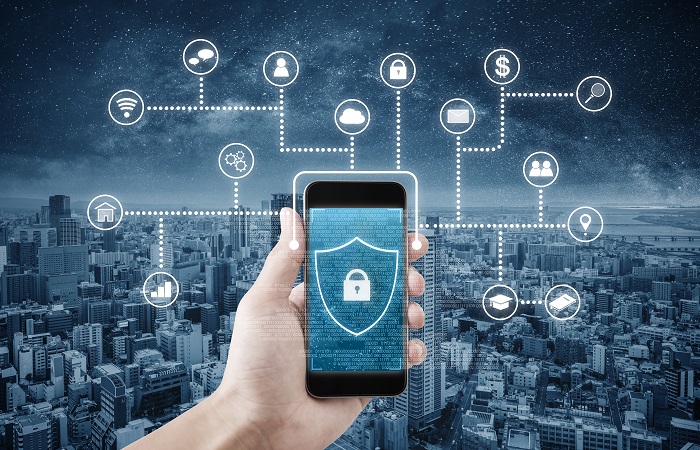
If you read news stories, white papers, and conspiracy theories about technology, you’ll probably stop relying too much on your trusty mobile devices, aka your smartphone and tablet. Every day, we hear stories about breaches in security protocols where a company’s or person’s data is spilled all over the internet. Isn’t this the whole point of Wikileaks? Someone with access to the database of the U.S. Army Intelligence hacked into the system and retrieved sensitive and critical information about the U.S. government.

When this information falls on the hand of someone like Julian Assange, the world watches as the case becomes a cat-and-mouse chase. But when it arrives knocking on the doors of cybercriminals, it would mean identity theft, corporate espionage, and financial hacking. You want to prevent this when using your mobile devices to browse online stores and send messages to your friends.
What Kind of Information Are on Your Phone?
You may think you don’t use your phone often enough to have sensitive information about you. Aside from the photos in your camera roll, there is so much personal information about you on your phone. Your browsing history is in your phone and some credit card details you used when buying online. Most apps on your phone are also automatically signed in, so anyone who can access your mobile devices will have access to your social media accounts, too.
They’ll even access your electronic medical records or EMR if you save your account details on your phone. Imagine your medical history being in the wrong hands. Cybercriminals can use these against you or sell such information to anyone who needs to fake an identity.
Lock Your Phones
Do not forget to password-protect your mobile devices. Use the most complicated passcode you can muster. Depending on your device’s capability, you can protect it with a password, pattern, fingerprint, or face recognition. Your device will allow you to choose how long it will remain open before locking it. Choose the shortest time possible so the phone will automatically close it even if you forget to do it.
Use Strong Passwords
This cannot be emphasized enough. You have to set strong passwords. If possible, use a two-factor authentication code so it’s harder for anyone to steal information from your devices. Experts said to use a different password for every app. That is hard, but try to create a technique that will allow you to remember the passwords easily. A 2018 report said that only 39% of mobile users are changing default passwords. This makes your information vulnerable.
Update Your Devices’ O.S.
Some people tend to overlook operating system updates. For them, it’s a waste of time, and there’s always something that doesn’t work after an update. System updates will improve the security and performance of the devices. When you fail to update your devices’ O.S., yackers and other cybercriminals can steal information from you.
Connect Only to Secure WiFi
You should avoid transacting financially on your phones while on public WiFi. You can’t even trust your office’s internet connection. Make it a point to purchase items online only in your home network. It would help if you didn’t even use your network’s data allocation, as it’s similar to public WiFi.
Stop Downloading
It would help if you stopped downloading items from the internet. Do not click that download button, whether it’s a photo, video, or unauthenticated program. Cybercriminals mask their phishing scams with legitimate links. So, you may have been able to download a movie without knowing that you also inadvertently sent your information to a criminal. Downloading items from the internet puts your devices at high risk.
Encrypt Your Data
Encrypting data means that the information you enter into your mobile devices is stored in an unreadable form. To check if your phone has data encryption enabled, go to your settings and check it under the “security” (for Android) or “Touch ID and passcode” (for iOS) categories. You will see a message at the bottom of the page that your phone’s data is encrypted.
Ignore Spam Emails
Most hackers and cybercriminals enter a computer system because the user or person who owns the device opened a spam or phishing email. A phishing email looks like an ordinary email. Most will ask you to click a link to collect a coupon code or get free shipping. Clicking on that link will allow cybercriminals to get into your system. That’s how they can steal millions of dollars worth of information from companies and the identities of thousands of individuals.
The most important thing to remember when you want to secure your mobile devices is to second-guess everything you do with them. If you’re about to download an app, do not do so unless you have read the reviews and are assured that it’s not merely a way for criminals to get sensitive information. Protecting your data is a sign of a responsible internet user.













